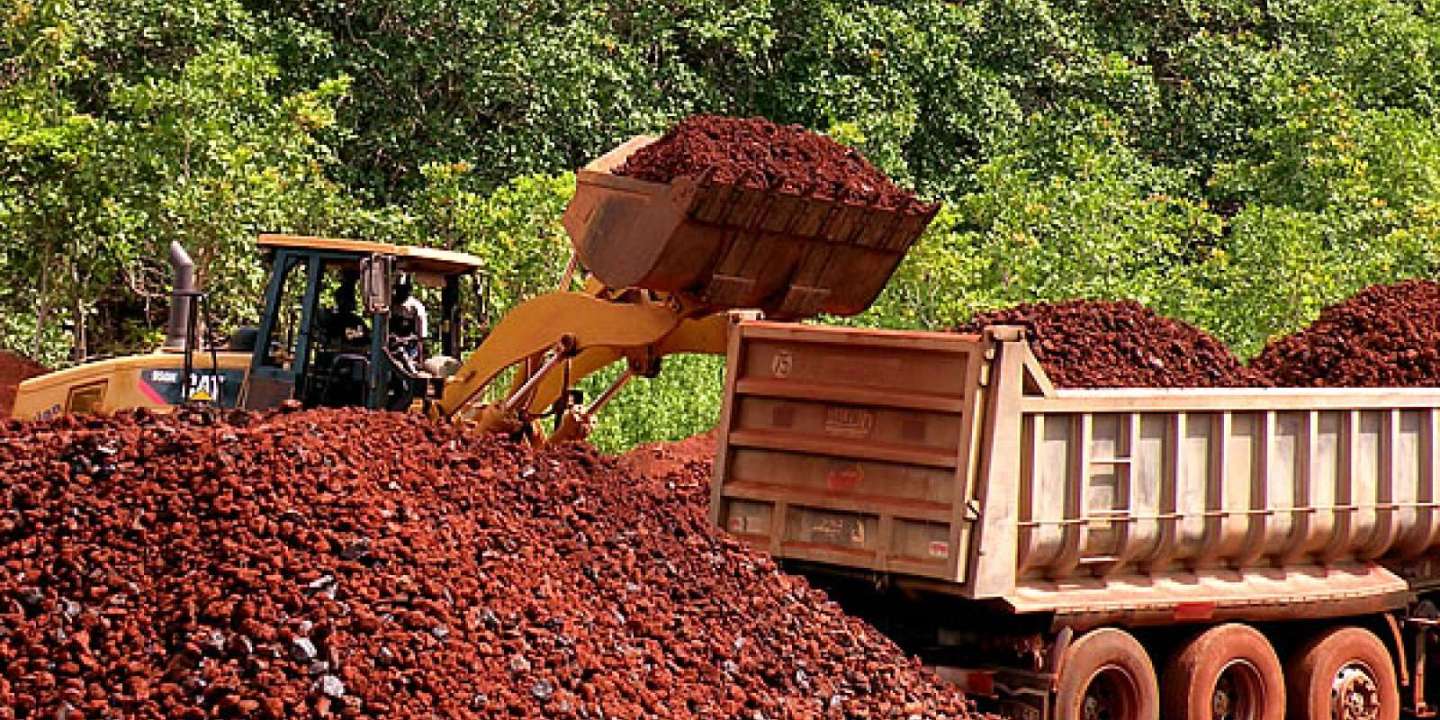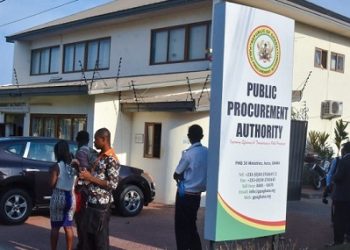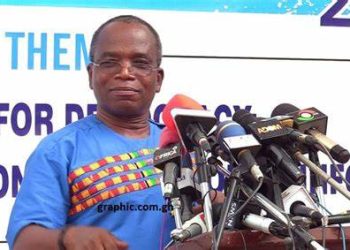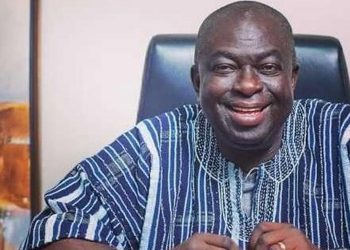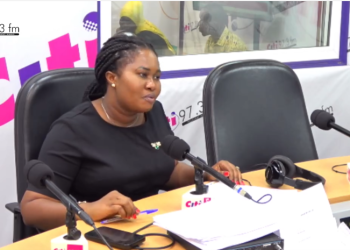Ghana’s decision to swap some of its bauxite resources for certain key developmental infrastructure has put the country on a collision course with some international civil society groups, with support from some local ones.
This comes after Minister for Finance, Ken Ofori-Atta, announced a swap (barter) deal between Ghana and China’s Sinohydro Corporation at the 2018 midyear budget review.
But should our local civil society groups allow themselves to be roped into the binary relations of West versus China at the expense of Ghana’s development?
Internationally, development projects have generally required funding from development finance institutions that also demand compliance with certain standards.
Encouraged by powerful international civil society groups, western international finance institutions do not shy from defunding core development projects that do not abide by certain imposed standards, whether or not they seek to address crucial developmental deficits in poor countries.
But operating with a different set of understandings that do not necessarily align with western norms, China’s engagement with Africa presents a game changer for the realisation of the continent’s economic transformation agenda.
In the meantime, Ghana’s deal with Sinohydro Corporation has stoked the flames of debates surrounding China-Africa relations.
The art of otherisation
The end of the cold war saw the emergence of a unipolar world confronted by the binary of Western epistemological understandings: good versus bad; angel versus devil; and us versus them.
After the demise of the soviet bloc, as the only remaining super power bloc, with no one else to take blame in the usversusthem narrative, decoupling the good from the bad in terms of its image became a complicated affair for the West.
Realpolitik became inevitable, as competition within the context of a new multipolar world threatened to disrupt historical western alliances.
Political analyst Ariel Colonomos rightly identified civil society groups as conduits for shaping the new power dynamics underpinning international relations in a post- cold war environment.
Often resorting to the art of otherisation, civil society groups now remain the singular voice (mostly in the areas of good governance & environment) directly relied on by the West to appear cohesive, in spite of their multipolar realism.
What determines morality from immorality in international relations is certainly who is powerful and who is not.
Not adhering to the diktats of influential western pressure groups that operate within the north-south divide is akin to attracting disfavour from western finance institutions; a situation experienced by Ethiopia in her attempt at harnessing its hydropower potential for development towards the end of the last decade.
The Horn of Africa country’s Gibe III hydroelectric dam project paled in comparison to the U.S.’s attempts, where over forty thousand (40,000) dams were built between 1950 and 1979 alone.
That major developmental project would later be partly funded by China after the pulling out of western financial partners following concerns that were mainly expressed by western civil society groups.
Drawing Parallels: Ghana’s bauxite &Ethiopia’s dam
International civil society organisations waxed lyrical about the doom Ethiopia’s core development project would spell, while ignoring the dam’s potential to make the country less vulnerable to drought.
Then Ethiopian Prime Minister, MelesZenawi, argued that it was not fair to hold Ethiopia’s development to ransom when western countries had done (and continue to do) far more damage to the environment in their developmental trajectory.
Aside from being the second biggest polluter in the world, the United States of America, allows fracking and coal mining. It is also neither a signatory to the Kyoto climate Protocol, nor the Paris Climate agreement.
Clearly, charity, it would seem, does not begin at home for some when it comes to morality in international relations.
What looks like a disingenuous application of two sets of rules may be at play where home economies of influential civil society groups continue to brazenly develop economies that thrive on hazardous environmental practices.
Never mind that our local civil society groups have no influence whatsoever on public opinion in countries that spew the most pollutants into Earth’s atmosphere. Interestingly, about half of the sixty-five (65) civil society groups complaining about bauxite mining by China in Ghana are foreign.
Also, an examination of the funding sources of the Ghanaian civil society groups involved in the Sinohydro opposition effort suggests the influence of even more powerful international civil society groups on the local scene.
This brings us to the question: who thinks for us?
Could those local civil society groups be rejecting the principle of path dependence, which suggests that the development of a new or better system depends on an already existing path?
Back to the Ethiopian case, it is clear that local civil society groups that had opposed the development of hydroelectricity had not considered that to safeguard the livelihoods of famine-prone Ethiopia on a bigger, more sustainable, scale it was important to develop industry and agriculture through what they already possessed: water resources.
Now, let’s put that in the Ghanaian context.
The Sinohydro deal seeks to plug our infrastructure deficit in what many believe will put us on the path to industrialisation.
Path dependence redux
In recent times, the core motives of civil society groups have often centred on China’s relationship with Africa.
This comes as Western journalists and civil society groups continue to view China’s partnership with Africa as being a debt trap and amoral at best.
A September, 2018, article by the Financial Times highlighted efforts being made in the United States to set up a $60bn development agency to “counter what some in Washington describe as China’s use of debt to wage economic warfare”.
But China’s meagre 2 per cent ($115bn) contribution to Africa’s debt stock between 2000 and 2016 — compared to the continent’s overall $6trillion – should have triggered some serious conversations about the success stories of non-Chinese assistance programmes.
This is even more difficult to understand considering that China’s Belt & Road initiative, which addresses Africa’s two most important developmental needs — electricity & transport infrastructure — continue to yield tangible outcomes for Africans.
Unfortunately, the binary of the good West versus the bad [reader inserts country here], within the scope of who decides morality in international relations, was brought to the fore even before the story began.
Without the realism of China’s dogged policy of non-interference, the real bottlenecks to development, – the uneasy relationship between the international civil society agenda (good governance & environment) and China’s Belt & Road initiative with Africa, – could have trapped the continent’s path dependence in a suboptimal cycle.
Rather than allowing ourselves to be roped into the binary of West-China relations, African civil society groups could perhaps think about how we could benefit from this competition.
And instead of pushing exogenous (or foreign) agendas, this could serve as a rallying cry for Africa’s civil society groups to chart their own developmental agenda by rethinking their relationships with their sponsors.
But considering the power dynamics that underpin international relations, African countries may need to find creative ways for achieving economic development.
This certainly requires Africans to unpick, understand and manoeuvre the subtle tricks and complexities of international relations.
Rather than accusing China whose recent presence challenges the West’s historical trajectory on the continent, local civil society groups need to reflect on developmental projects upon which Ghana can finally emerge after centuries of telling and supporting certain stories that clearly do not support our socio-economic development.
Author’s disclaimer: Not everything from the West is bad and not everything from the West is good, just like not everything from China is bad and not everything from China is good.
–
By: Prince Moses

